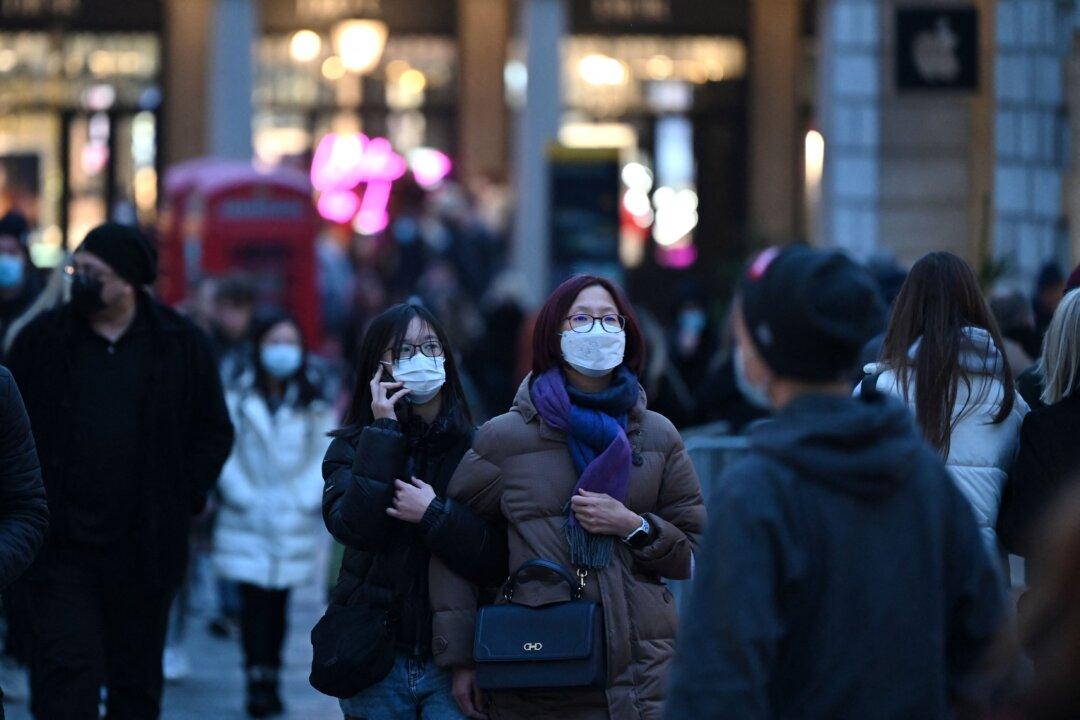The symptoms of Omicron positive cases “feel much more like the common cold,” a British scientist said on Thursday as he warned that half of the people with cold-like symptoms now have COVID-19.
Tim Spector, professor of genetic epidemiology at King’s College London and the lead scientist on the ZOE COVID Study app, blasted the UK government for the “misinformation” in its latest stay-at-home guidance about COVID-19 symptoms.





